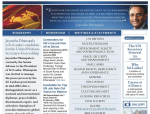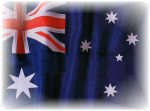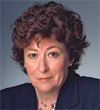An observant reader reported (hat tip, db!) that the Canadian Permanent Mission to the UN today released a non-paper suggesting that a “more open and rigourous” selection process for the UNSG could involve changes this year, as well as discussions on later reforms. It was reportedly shared with other missions in New York this week.
At a time when member states are discussing the reform and renewal of so many aspects of the UN, it seems entirely appropriate that we should critically examine the way in which we choose the person who will serve as the organisation’s leader. This non-paper offers preliminary suggestions for a more transparent and open selection process aimed at ensuring that individuals with the right temperament, talents and judgment are identified and submitted to the General Assembly for consideration.
The non-paper recommends that the UNSG selection process could adopt practices currently used in the selection of the OECD Secretary General and the WTO Director General – processes that are “consultative, transparent and merit-based.”
Noting the recent World Economic Forum roundtable with Ban, Dhanapala, and Vīķe-Freiberga, the proposal concludes that “it would be regrettable if the WEF could organize such an event but we found ourselves unable to do the same here at the UN for the benefit of the very people who will make the selection.” It strongly recommends that this year’s selection process could involve
“…roundtables or public briefings…to provide a setting in which current and emerging candidates might introduce themselves to the UN community, discuss their experience and their achievements and explain their viewpoints and vision concerning the office of Secretary-General and the role of the UN in the years ahead. Such informal events might be convened under the joint auspices of the President of the General Assembly and the President of the Security Council, under circumstances that will encourage an informative but respectful exploration of the perspectives and positions of the candidates.”
Though the proposal stresses the authority and role of the Security Council in the selection process, there is an underlying insistence that the General Assembly’s role in the process be likewise respected, and that the larger body carefully
“…exercise its judgment in concluding that the person recommended by the Security Council merits appointment. The current practice does not provide for any means—formal or informal—by which the General Assembly can develop knowledge about the candidate(s) sufficient to allow it to exercise that judgment in an informed and responsible way. One of the key objectives of the changes we propose is to enable the General Assembly to make a decision based on relevant and reliable information.”
More substantive improvements, to be established later the paper suggests, should include a formal search committee to identify candidates, agreed upon qualifications, and informal sessions of the GA or regional groups to evaluate “the relative merits of the candidates, their approach to the office and their vision of the UN.”
Update: U.S. Ambassador John Bolton was asked about the Canadian proposals outside the Security Council chambers today:
Reporter: (inaudible) circulated yesterday, a proposal for changing the method for how the next Secretary General will be chosen. They’re basically proposing more active involvement with the General Assembly and there are other specific proposals out there. I wonder if the US government had a chance to review this document and if you had any initial reactions to it?
Ambassador Bolton (in his national capacity): We are reviewing it now. We certainly welcome constructive suggestions. We have already begun consultations in the Security Council this month on the selection of the next Secretary General. As you know, the Charter of the United Nations specifies that the Security Council takes the first action; and we have begun those consultations.
 with the aim of “…[making] accessible to ‘the peoples of the United Nations’ the credentials, capabilities, views and values of Jayantha Dhanapala as he aspires to lead the UN through this critical juncture of its history.”
with the aim of “…[making] accessible to ‘the peoples of the United Nations’ the credentials, capabilities, views and values of Jayantha Dhanapala as he aspires to lead the UN through this critical juncture of its history.”

 “The selection of the next secretary-general of the United Nations will not be decided on the basis of whether I or anybody else expresses any interest in the position. An expression of interest by anybody is a pure exercise of vanity.”
“The selection of the next secretary-general of the United Nations will not be decided on the basis of whether I or anybody else expresses any interest in the position. An expression of interest by anybody is a pure exercise of vanity.”



